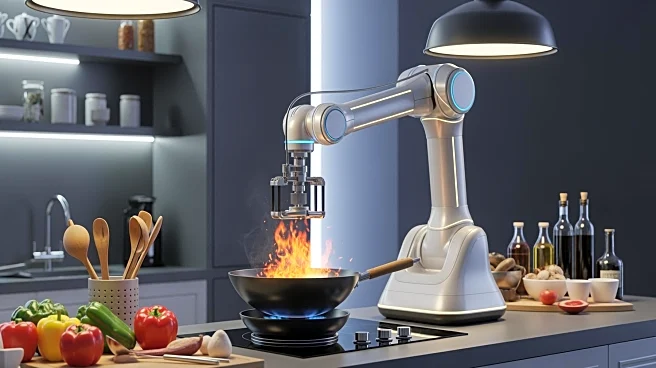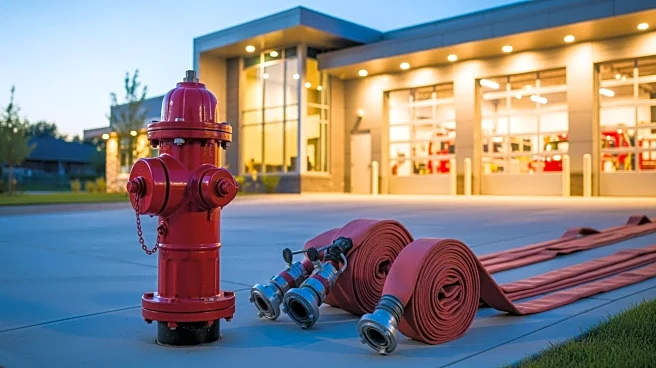What's Happening?
In Los Angeles, two robot wok restaurants, Tigawok and Robowok, are competing to capture the market for fast, affordable Chinese food. Tigawok, founded by Tomas Su and Kelvin Wang, claims to be the first
robot-powered Chinese restaurant in Los Angeles, with locations in Burbank and Irvine, and plans for expansion. Robowok, located near the University of Southern California, remains somewhat mysterious, with unclear origins and limited information available. Both restaurants utilize automatic woks to prepare dishes, offering a variety of mini bowls with familiar Chinese cuisine. The competition highlights a growing trend in the restaurant industry towards automation to reduce labor costs and increase efficiency.
Why It's Important?
The emergence of robot-powered restaurants in Los Angeles reflects broader trends in the food industry, where automation is increasingly used to address rising labor costs and demand for quick service. This shift could significantly impact employment in the restaurant sector, potentially reducing the need for human labor. Additionally, the competition between Tigawok and Robowok may influence consumer preferences, as diners weigh the benefits of convenience and cost against the traditional dining experience. The success of these establishments could pave the way for more automated restaurants, altering the landscape of the food service industry.
What's Next?
As Tigawok and Robowok continue to vie for market share, their success could encourage further investment in automated restaurant technology. This may lead to increased competition and innovation in the sector, potentially driving down costs and improving efficiency. Stakeholders, including restaurant owners and technology developers, will likely monitor consumer reactions and adjust strategies accordingly. The trend towards automation may also prompt discussions among policymakers and labor advocates about the implications for employment and worker rights in the food service industry.
Beyond the Headlines
The rise of robot-powered restaurants raises ethical and cultural questions about the future of dining. While automation offers efficiency, it may diminish the social and community aspects of dining that many value. Additionally, the reliance on technology could lead to concerns about data privacy and security, as automated systems collect and process customer information. Long-term, the shift towards automation may influence culinary traditions, as the focus on speed and cost efficiency could impact the quality and authenticity of food offerings.










